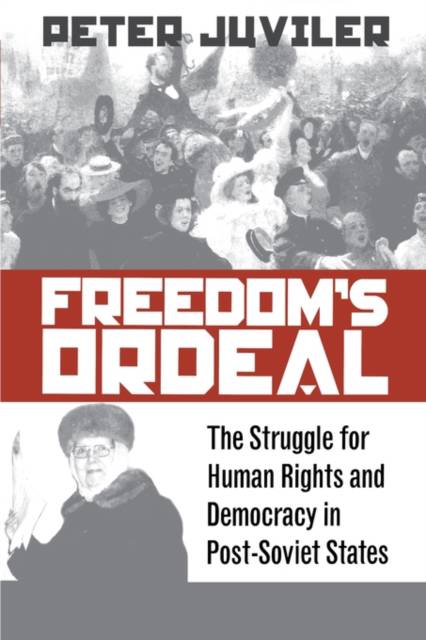
- Afhalen na 1 uur in een winkel met voorraad
- Gratis thuislevering in België vanaf € 30
- Ruim aanbod met 7 miljoen producten
- Afhalen na 1 uur in een winkel met voorraad
- Gratis thuislevering in België vanaf € 30
- Ruim aanbod met 7 miljoen producten
Zoeken
€ 108,45
+ 216 punten
Omschrijving
Fifteen countries have emerged from the collapse of the Soviet Union. Freedom's Ordeal recounts the struggles of these newly independent nations to achieve freedom and to establish support for fundamental human rights. Although history has shown that states emerging from collapsed empires rarely achieve full democracy in their first try, Peter Juviler analyzes these successor states as crucial and not always unpromising tests of democracy's viability in postcommunist countries. Taking into account the particularly difficult legacies of Soviet communism, Freedom's Ordeal is distinguished by its careful tracing of the historical background, with special attention to human rights before, during, and after communism. Juviler suggests that the culture and practices of despotism may wither wherever modernization conflicts with tyranny and with the curtailment or denial of democratic rights and freedoms.
Specificaties
Betrokkenen
- Auteur(s):
- Uitgeverij:
Inhoud
- Aantal bladzijden:
- 312
- Taal:
- Engels
- Reeks:
Eigenschappen
- Productcode (EAN):
- 9780812234183
- Verschijningsdatum:
- 29/10/1997
- Uitvoering:
- Hardcover
- Formaat:
- Genaaid
- Afmetingen:
- 164 mm x 243 mm
- Gewicht:
- 693 g

Alleen bij Standaard Boekhandel
+ 216 punten op je klantenkaart van Standaard Boekhandel
Beoordelingen
We publiceren alleen reviews die voldoen aan de voorwaarden voor reviews. Bekijk onze voorwaarden voor reviews.











